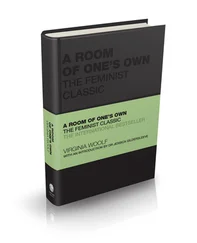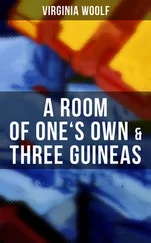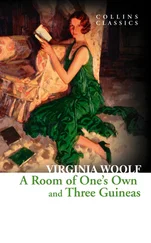Virginia Woolf - Jacob's Room
Здесь есть возможность читать онлайн «Virginia Woolf - Jacob's Room» весь текст электронной книги совершенно бесплатно (целиком полную версию без сокращений). В некоторых случаях можно слушать аудио, скачать через торрент в формате fb2 и присутствует краткое содержание. Жанр: Классическая проза, на английском языке. Описание произведения, (предисловие) а так же отзывы посетителей доступны на портале библиотеки ЛибКат.
- Название:Jacob's Room
- Автор:
- Жанр:
- Год:неизвестен
- ISBN:нет данных
- Рейтинг книги:3 / 5. Голосов: 1
-
Избранное:Добавить в избранное
- Отзывы:
-
Ваша оценка:
- 60
- 1
- 2
- 3
- 4
- 5
Jacob's Room: краткое содержание, описание и аннотация
Предлагаем к чтению аннотацию, описание, краткое содержание или предисловие (зависит от того, что написал сам автор книги «Jacob's Room»). Если вы не нашли необходимую информацию о книге — напишите в комментариях, мы постараемся отыскать её.
Jacob's Room — читать онлайн бесплатно полную книгу (весь текст) целиком
Ниже представлен текст книги, разбитый по страницам. Система сохранения места последней прочитанной страницы, позволяет с удобством читать онлайн бесплатно книгу «Jacob's Room», без необходимости каждый раз заново искать на чём Вы остановились. Поставьте закладку, и сможете в любой момент перейти на страницу, на которой закончили чтение.
Интервал:
Закладка:
At Mudie's corner in Oxford Street all the red and blue beads had run together on the string. The motor omnibuses were locked. Mr. Spalding going to the city looked at Mr. Charles Budgeon bound for Shepherd's Bush. The proximity of the omnibuses gave the outside passengers an opportunity to stare into each other's faces. Yet few took advantage of it. Each had his own business to think of. Each had his past shut in him like the leaves of a book known to him by heart; and his friends could only read the title, James Spalding, or Charles Budgeon, and the passengers going the opposite way could read nothing at all-save "a man with a red moustache," "a young man in grey smoking a pipe." The October sunlight rested upon all these men and women sitting immobile; and little Johnnie Sturgeon took the chance to swing down the staircase, carrying his large mysterious parcel, and so dodging a zigzag course between the wheels he reached the pavement, started to whistle a tune and was soon out of sight-for ever. The omnibuses jerked on, and every single person felt relief at being a little nearer to his journey's end, though some cajoled themselves past the immediate engagement by promise of indulgence beyond-steak and kidney pudding, drink or a game of dominoes in the smoky corner of a city restaurant. Oh yes, human life is very tolerable on the top of an omnibus in Holborn, when the policeman holds up his arm and the sun beats on your back, and if there is such a thing as a shell secreted by man to fit man himself here we find it, on the banks of the Thames, where the great streets join and St. Paul's Cathedral, like the volute on the top of the snail shell, finishes it off. Jacob, getting off his omnibus, loitered up the steps, consulted his watch, and finally made up his mind to go in... Does it need an effort? Yes. These changes of mood wear us out.
Dim it is, haunted by ghosts of white marble, to whom the organ for ever chaunts. If a boot creaks, it's awful; then the order; the discipline. The verger with his rod has life ironed out beneath him. Sweet and holy are the angelic choristers. And for ever round the marble shoulders, in and out of the folded fingers, go the thin high sounds of voice and organ. For ever requiem-repose. Tired with scrubbing the steps of the Prudential Society's office, which she did year in year out, Mrs. Lidgett took her seat beneath the great Duke's tomb, folded her hands, and half closed her eyes. A magnificent place for an old woman to rest in, by the very side of the great Duke's bones, whose victories mean nothing to her, whose name she knows not, though she never fails to greet the little angels opposite, as she passes out, wishing the like on her own tomb, for the leathern curtain of the heart has flapped wide, and out steal on tiptoe thoughts of rest, sweet melodies... Old Spicer, jute merchant, thought nothing of the kind though. Strangely enough he'd never been in St. Paul's these fifty years, though his office windows looked on the churchyard. "So that's all? Well, a gloomy old place... Where's Nelson's tomb? No time now-come again-a coin to leave in the box... Rain or fine is it? Well, if it would only make up its mind!" Idly the children stray in-the verger dissuades them-and another and another... man, woman, man, woman, boy... casting their eyes up, pursing their lips, the same shadow brushing the same faces; the leathern curtain of the heart flaps wide.
Nothing could appear more certain from the steps of St. Paul's than that each person is miraculously provided with coat, skirt, and boots; an income; an object. Only Jacob, carrying in his hand Finlay's Byzantine Empire, which he had bought in Ludgate Hill, looked a little different; for in his hand he carried a book, which book he would at nine-thirty precisely, by his own fireside, open and study, as no one else of all these multitudes would do. They have no houses. The streets belong to them; the shops; the churches; theirs the innumerable desks; the stretched office lights; the vans are theirs, and the railway slung high above the street. If you look closer you will see that three elderly men at a little distance from each other run spiders along the pavement as if the street were their parlour, and here, against the wall, a woman stares at nothing, boot-laces extended, which she does not ask you to buy. The posters are theirs too; and the news on them. A town destroyed; a race won. A homeless people, circling beneath the sky whose blue or white is held off by a ceiling cloth of steel filings and horse dung shredded to dust.
There, under the green shade, with his head bent over white paper, Mr. Sibley transferred figures to folios, and upon each desk you observe, like provender, a bunch of papers, the day's nutriment, slowly consumed by the industrious pen. Innumerable overcoats of the quality prescribed hung empty all day in the corridors, but as the clock struck six each was exactly filled, and the little figures, split apart into trousers or moulded into a single thickness, jerked rapidly with angular forward motion along the pavement; then dropped into darkness. Beneath the pavement, sunk in the earth, hollow drains lined with yellow light for ever conveyed them this way and that, and large letters upon enamel plates represented in the underworld the parks, squares, and circuses of the upper. "Marble Arch-Shepherd's Bush"-to the majority the Arch and the Bush are eternally white letters upon a blue ground. Only at one point-it may be Acton, Holloway, Kensal Rise, Caledonian Road-does the name mean shops where you buy things, and houses, in one of which, down to the right, where the pollard trees grow out of the paving stones, there is a square curtained window, and a bedroom.
Long past sunset an old blind woman sat on a camp-stool with her back to the stone wall of the Union of London and Smith's Bank, clasping a brown mongrel tight in her arms and singing out loud, not for coppers, no, from the depths of her gay wild heart-her sinful, tanned heart-for the child who fetches her is the fruit of sin, and should have been in bed, curtained, asleep, instead of hearing in the lamplight her mother's wild song, where she sits against the Bank, singing not for coppers, with her dog against her breast.
Home they went. The grey church spires received them; the hoary city, old, sinful, and majestic. One behind another, round or pointed, piercing the sky or massing themselves, like sailing ships, like granite cliffs, spires and offices, wharves and factories crowd the bank; eternally the pilgrims trudge; barges rest in mid stream heavy laden; as some believe, the city loves her prostitutes.
But few, it seems, are admitted to that degree. Of all the carriages that leave the arch of the Opera House, not one turns eastward, and when the little thief is caught in the empty market-place no one in black-and-white or rose-coloured evening dress blocks the way by pausing with a hand upon the carriage door to help or condemn-though Lady Charles, to do her justice, sighs sadly as she ascends her staircase, takes down Thomas a Kempis, and does not sleep till her mind has lost itself tunnelling into the complexity of things. "Why? Why? Why?" she sighs. On the whole it's best to walk back from the Opera House. Fatigue is the safest sleeping draught.
The autumn season was in full swing. Tristan was twitching his rug up under his armpits twice a week; Isolde waved her scarf in miraculous sympathy with the conductor's baton. In all parts of the house were to be found pink faces and glittering breasts. When a Royal hand attached to an invisible body slipped out and withdrew the red and white bouquet reposing on the scarlet ledge, the Queen of England seemed a name worth dying for. Beauty, in its hothouse variety (which is none of the worst), flowered in box after box; and though nothing was said of profound importance, and though it is generally agreed that wit deserted beautiful lips about the time that Walpole died-at any rate when Victoria in her nightgown descended to meet her ministers, the lips (through an opera glass) remained red, adorable. Bald distinguished men with gold-headed canes strolled down the crimson avenues between the stalls, and only broke from intercourse with the boxes when the lights went down, and the conductor, first bowing to the Queen, next to the bald-headed men, swept round on his feet and raised his wand.
Читать дальшеИнтервал:
Закладка:
Похожие книги на «Jacob's Room»
Представляем Вашему вниманию похожие книги на «Jacob's Room» списком для выбора. Мы отобрали схожую по названию и смыслу литературу в надежде предоставить читателям больше вариантов отыскать новые, интересные, ещё непрочитанные произведения.
Обсуждение, отзывы о книге «Jacob's Room» и просто собственные мнения читателей. Оставьте ваши комментарии, напишите, что Вы думаете о произведении, его смысле или главных героях. Укажите что конкретно понравилось, а что нет, и почему Вы так считаете.











